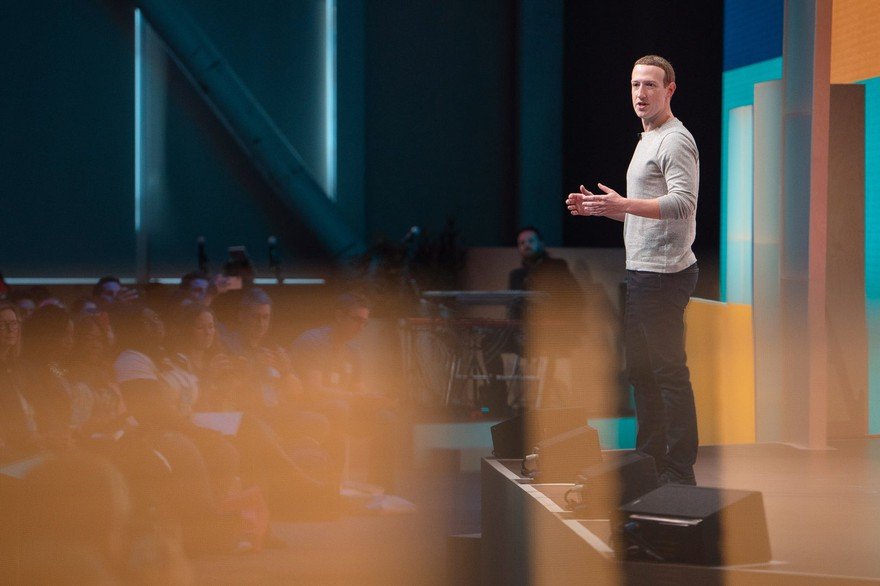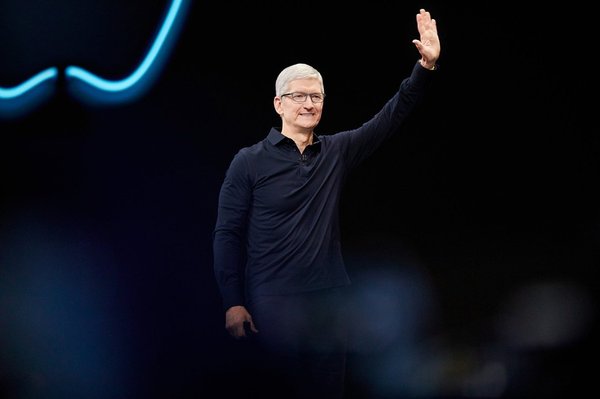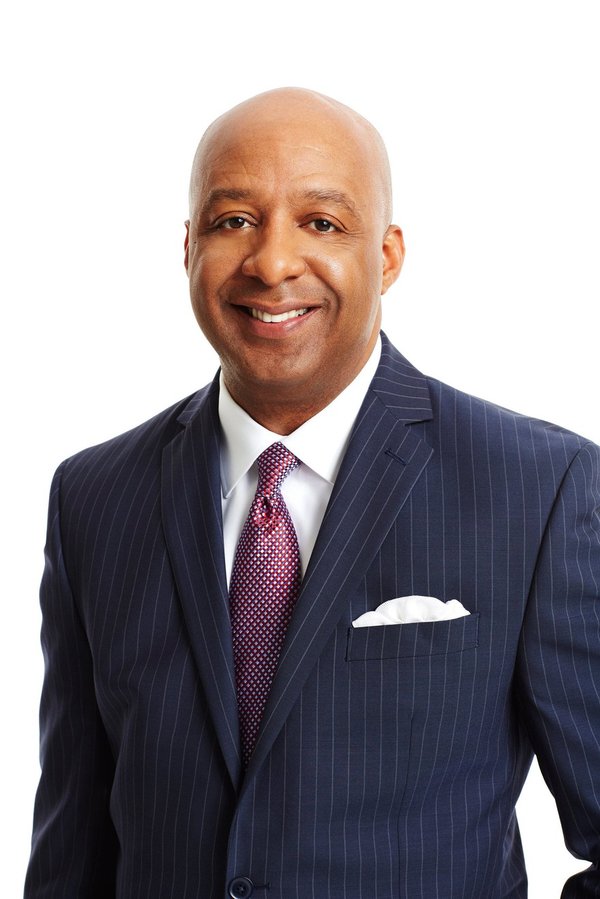Mark Zuckerberg is the brain behind Meta Platforms' (META -4.69%) Facebook and one of the world's richest people. Here's a look at how he made his wealth and where he invests it.

Who is he?
Who is Mark Zuckerberg?
Zuckerberg is the co-founder and CEO of Meta, Facebook's parent company. He's also a college dropout, philanthropist, and self-taught computer programmer.
In 2007, at age 23, Zuckerberg became the world's youngest billionaire. In 2023, Forbes estimated Zuckerberg's net worth at $93.8 billion and ranked him as the 12th-richest person in the world. That net worth nears Zuckerberg's 2021 wealth peak, estimated at $97 billion.
History
The history of Mark Zuckerberg
Zuckerberg transformed himself from college student to billionaire between 2004 and 2007. Here are the highlights of his progression:
- Zuckerberg and four friends launched Facebook from a Harvard dorm room in 2004.
- Zuckerberg dropped out of Harvard in 2005 to focus on the business.
- Facebook raised almost $13 million in venture capital in 2005 to fund a nationwide rollout, first to other colleges and universities, then to the public at large.
In 2008, Zuckerberg's wealth swelled to an estimated $1.5 billion after Digital Sky Technologies purchased a 1.96% share of Facebook for $200 million.
In 2012, Facebook went public, raising $16 billion. Today, the company's valuation exceeds $670 billion, down from a high of more than $1 trillion in 2021.
In 2015, Zuckerberg and his wife, Priscilla Chan, launched the Chan Zuckerberg Initiative (CZI), a philanthropic organization. CZI funds programs to create opportunities in northern California communities, advance criminal justice and immigration reform, eradicate disease, and improve education.
Investment strategy
Mark Zuckerberg's investment strategy
Zuckerberg is a famous investor, although he's not a fund manager type like Warren Buffett, Ray Dalio, or Carl Icahn. Those guys increased their wealth by learning to pick good companies that already existed. Zuckerberg's path was different. He found his fortune through entrepreneurship -- building a single company from the ground up.
Zuckerberg's public interviews typically center on Facebook and Meta Platforms rather than his investing style or which stocks to buy. Still, it's possible to glean a sense of his style by looking at the projects he personally funds and the companies he's rolled into his Meta Platforms empire.
Zuckerberg's investments
Many of Zuckerberg's personal projects are cause-driven. Recent investments and grants funded by CZI have focused on technological solutions for healthcare, climate change, and education. Some of the companies Zuckerberg has supported include:
- Apollo Agriculture: a commercial farming platform that small farmers in Africa use to increase their yields and profits.
- BYJU's: an education technology company based in India.
- Emeritus: a company that partners with leading universities to deliver educational content to learners around the world.
- Handshake: a platform that connects employers with college students.
- Lovevery: maker of award-winning children's play kits to support brain development.
- Nerdy (NYSE:NRDY): owner of Varsity Tutors, an online tutoring marketplace. Nerdy is the first CZI investment to go public.
- Twelve: a company that uses carbon emissions to make chemicals and fuel products.
Meta Platforms investments
Meta's early acquisition strategy involved buying up potential rivals, such as Instagram in 2012 and WhatsApp in 2014. But in recent years, the company has used acquisitions to position itself as a leader in the metaverse.
The metaverse is a mashup of virtual reality (VR) and augmented reality (AR). Zuckerberg sees it as the next evolution of the internet, where users can connect, interact, and have immersive virtual experiences. His attachment to the concept drove the company's 2021 name change from Facebook to Meta Platforms.
Meta has been building its VR and AR resources since its 2014 acquisition of Oculus VR. More recent purchases include VR game makers Downpour Interactive and BigBox VR, VR/AR optics company ImagineOptix, and CTRL-Labs, makers of a wristband that activates and controls a virtual hand.
In 2022, Meta bought three VR game developers: Camouflaj, Twisted Pixel, and Armature Studio. All three were rolled into Meta's Oculus Studio division.
Takeaways for individual investors
As an individual investor, your financial goals probably don't match Zuckerberg's. You may not have corporate rivals, for example, or the resources to battle large-scale global climate change. Still, there are some investing strategies you can copy from Zuckerberg, CZI, and Meta:
- Focus on sectors you know. Zuckerberg knows technology. You might feel more comfortable investing in the financial sector, real estate, food and beverage, or mass market retail.
- Invest in emerging trends that interest you. Zuckerberg wants to be at the forefront of virtual experiences. Maybe you don't get the metaverse, but what about self-driving cars or biotech that saves lives? Find a cause you believe in and invest there.
- Review your portfolio for exposure gaps and fill them in as necessary. Meta has a long history of buying companies to round out the experience on its biggest platform, Facebook. You can apply a similar concept to your investment portfolio. Look for gaps in your exposure and consider whether you should fill them. Think in terms of sectors, geographies, and business size.

His best investments
Mark Zuckerberg's best investments
Zuckerberg's largest investment, by far, is his position in Meta Platforms. He owns about 350 million shares of Meta, which comprise the bulk of his net worth.
Three of Zuckerberg's best investing decisions were made through Meta -- Instagram, WhatsApp, and Oculus. Another good bet was Intercom, which landed in his portfolio by way of Iconiq Capital. Iconiq is a private venture capital firm with Zuckerberg and other billionaires on its client list.
1. Instagram
Meta purchased Instagram in 2012 for $1 billion. At the time, the photo-sharing app had 50 million users and no revenue. Since then, the Instagram base has grown to more than one billion users globally. Bloomberg reported that Instagram generated $20 billion in ad revenue for Meta in 2019.
In 2018, Bloomberg pegged Instagram's stand-alone value at $100 billion. The value increase from $1 billion to $100 billion in six years equates to a compound annual growth rate of 115%.
Since 2018, Instagram's user base has grown from 805 million (according to Statista) to more than two billion in 2023.
2. WhatsApp
Two years after the Instagram buy, Meta bought the WhatsApp messenger app for an eye-popping $19 billion. WhatsApp wasn't profitable, but the driver of the deal was the app's momentum. At the time, WhatsApp had 450 million users and was adding one million users daily.
User growth has continued. In 2022, Meta reported that WhatsApp had two billion daily active users.
Meta has since dropped WhatsApp's original revenue generator, a $1 subscription fee. Instead, the company is pushing WhatsApp business users to paid services such as ad campaigns on Facebook and Instagram. Meta does not break out the revenue impact of its strategy.

3. Oculus VR
Meta bought VR headset maker Oculus VR in 2014 for $2 billion. Nine years later, it's tough to argue the purchase has paid off -- yet.
According to Counterpoint Research, Oculus is the leader in its space, owning an 81% share in VR headsets. And Oculus sales have grown from an estimated 3.5 million devices in 2020 to an estimated range of 5.3 million to 6.8 million in 2021. The Verge reported in early 2023 that Meta had sold a total of 20 million headsets to date.
The growth is promising, but there's a bigger picture for Oculus that hasn't yet materialized. Recently renamed Meta Quest, the company stands to be the launching pad for Meta's domination of the metaverse.
In June 2023, Meta announced a new metaverse headset -- Meta Quest 3 -- a lower price for the legacy headset, and 15 new games for headset owners to enjoy. Meta Quest 3 should be on store shelves this fall at a price point of $499. Metaverse enthusiasts on a smaller budget can invest in the Meta Quest 2 headset for $299.
If more games and lower headset prices drive increased user engagement and interest in the metaverse, Meta's bigger strategy will start taking shape. That could make the Oculus acquisition Zuckerberg's smartest move to date.
4. Intercom
Intercom launched in 2011 in Dublin, Ireland. Zuckerberg got involved via Iconiq with the 2014 Series C round that raised Intercom's total funding to $66 million. Four years later, the messaging software company raised another $125 million at a $1.3 billion valuation.
In 2021, Intercom CEO Karen Peacock confirmed that the company was preparing for an initial public offering (IPO), so this could be one to watch. Peacock didn't specify a timeline for the offering, but she did say that Intercom's revenues had significantly grown since 2018. That pushes the company's value beyond the $1.3 billion mark from its Series D round.
Related investing topics
Copying his portfolio
Copying Mark Zuckerberg's portfolio
The simplest way to copy Zuckerberg's investment portfolio is to buy shares in Meta. That would provide exposure to Instagram and Facebook, plus the emerging metaverse.
Meta is spending billions to deliver on its metaverse vision. The investment will temper the growth delivered by the company's more mature social media properties. This dynamic has many investors nervous about Meta's future. Still, if you believe in the metaverse strategy, now might be the time to buy Meta and other metaverse stocks.
Zuckerberg's other investments are mainly private placements that aren't universally accessible. Still, you can channel his style by investing in trends and causes that interest you. Impact funds, innovation funds, and disruptive tech funds are good starting points for your research.












